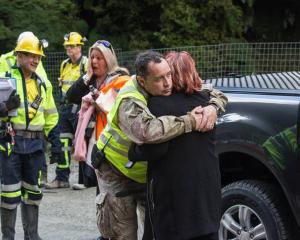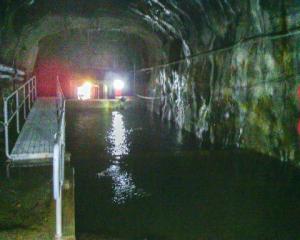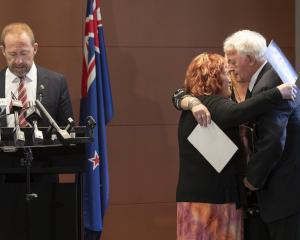The Royal Commission into the Pike River mine disaster was not a criminal investigation, counsel for the commission told the first day of the hearing today.
The inquiry began in Greymouth District Court this morning, almost eight months after the first of a series of explosions ripped through the West Coast mine on November 19, killing 29 men working inside.
Counsel assisting the commission James Wilding opened the hearing by remembering the men who died underground, giving a background of what the commission would set out to achieve and how the hearings would be organised.
The commission was "not a criminal investigation" and it was important judgment on individuals who received any type of blame in the hearings was reserved until all the phases had been heard, Mr Wilding said.
He said it would be up to the police and the Department of Labour if charges would be laid, but the commission would co-operate if they were laid.
"We would work with the police and the Department of Labour and other regulatory agencies to endeavour to find ways of [providing] relevant material put before you in a timely manner," Mr Wilding said.
He also went through a list of some the written evidence -- including allegations the mine was unsafe and that mine safety regulations were too lax -- given to the commission.
Solid Energy chief executive Don Elder later today will be the first of 12 witnesses to be called over the next two weeks.
Earlier, the families of the victims presented a united front as they entered Greymouth District Court together on a cold and dark Greymouth day.
Grey District Mayor Tony Kokshoorn, former national secretary of the Engineering, Printing and Manufacturing Union (EPMU) Andrew Little, and Peter Whittall, former chief executive Pike River Coal Ltd, which is now in receivership, were also amongst those who sat down to follow the hearing.
Speaking outside the court, families' spokesman Bernie Monk who lost his miner son Michael, said today was the start of a "big journey".
Mr Kokshoorn said the start of the hearings was a "relief" for Greymouth even though "closure is a long way away".
He said he was confident the commission would lead to safer mines in the future.
"What we are trying to do is get safer mines and find out why another disaster has happened here."
The three-man commission, chaired by Justice Graham Panckhurst, was set up to discover what caused the explosions and how the men died, to examine the search and rescue operation following the blasts, and yo make recommendations on how similar disasters can be prevented.
Justice Panckhurst will be assisted by David Henry, former Inland Revenue Commissioner and head of the Electoral Commission, and Stewart Bell, mine safety and health commissioner for the Queensland state government.
The hearings have been broken up into four phases.
The first, beginning today and ending on July 22, will focus on New Zealand's regulatory environment and the geography, approval and development of the mine.











